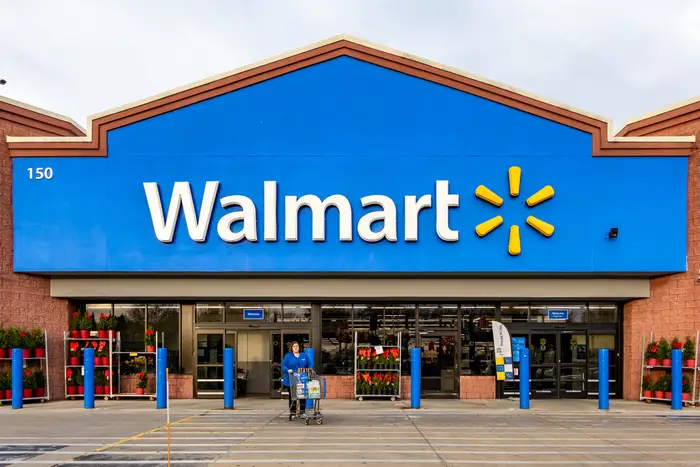Walmart Scales Back Diversity Policies Amid Conservative Pressure
Walmart announces changes to its diversity, equity, and inclusion policies, including reducing racial equity training and supplier diversity efforts, following mounting conservative pressure.

Walmart Adjusts Diversity Policies Amid Conservative Backlash
In response to increasing pressure from conservative groups, Walmart has decided to roll back certain aspects of its diversity, equity, and inclusion (DEI) initiatives. The move follows a broader trend where several major corporations have adjusted their DEI policies, with conservative activists urging businesses to reevaluate their commitment to race, gender, and LGBTQ+ inclusion.
The world’s largest retailer, Walmart, is taking steps to reduce the scope of its diversity efforts, with key changes including no longer considering race and gender when granting supplier contracts. Additionally, Walmart will no longer assess eligibility for financing based on suppliers providing demographic data, such as race, gender, or sexual orientation. These moves signal a shift in the company’s approach to diversity, one that has drawn attention from both corporate watchers and political activists.
Changes to Supplier Contracts and Financing Eligibility
One of the most significant policy changes announced is Walmart’s decision to stop considering race and gender as factors when awarding contracts to suppliers. This marks a departure from the retailer's previous efforts to promote supplier diversity and create opportunities for minority- and women-owned businesses. Similarly, Walmart will no longer require suppliers to provide demographic data when applying for financing, signaling a clear shift away from policies that were once intended to increase inclusion and representation within the company’s supplier network.
The company’s stance on these issues has evolved, driven in part by growing scrutiny from conservative activists who have increasingly targeted corporate America’s commitment to DEI practices. While Walmart has not provided specific details on why these changes are being made, the company has indicated that it is listening to its associates and customers, who represent a broad spectrum of American perspectives.
Scaling Back Racial Equity Training and LGBTQ+ Involvement
In addition to revising its supplier diversity policies, Walmart will also scale back its internal racial equity training programs. This move will likely affect the retailer’s approach to educating its employees about racial disparities and diversity-related challenges within the workplace. The retailer has also decided to stop participating in rankings conducted by LGBTQ+ advocacy groups, a key component of the company’s previous efforts to highlight its inclusivity toward the LGBTQ+ community.
Walmart has also indicated that it will review its support for Pride events and other LGBTQ+-related initiatives. The company’s participation in these events, once seen as an emblem of its commitment to diversity, will now undergo a reassessment in light of the evolving political and cultural landscape.
Walmart’s Shift Mirrors Broader Corporate Trends
Walmart’s recent changes come at a time when other large companies, such as Starbucks, JPMorgan Chase, and Ford, have also modified their DEI policies in response to mounting pressure from conservative groups. In fact, Walmart is not the first to face scrutiny over its DEI initiatives. A growing number of high-profile companies, including Ford, Lowe’s, and Molson Coors, have adjusted their diversity programs after conservative activists called for them to reduce their focus on race, gender, and sexual orientation.
Robby Starbuck, a conservative activist and vocal critic of DEI practices, has played a central role in pressuring companies like Walmart to revisit their diversity policies. Starbuck disclosed the changes to Walmart’s DEI strategy on social media platform X (formerly Twitter) before the Bloomberg report was published. According to Starbuck, he engaged in productive discussions with Walmart representatives after writing to the company about his concerns over its DEI initiatives.
In previous months, Starbuck has confronted several large corporations, including Ford, Lowe’s, and Molson Coors, prompting them to reexamine their diversity policies. These companies, along with others, have adjusted their strategies to appease conservative critics who argue that such policies are divisive and counterproductive to business objectives.
Walmart’s Commitment to Change
Despite the backlash against DEI programs, Walmart maintains that its recent decisions reflect its willingness to adapt in response to its customers’ and employees’ perspectives. A spokesperson for the retailer emphasized that the company is committed to evolving alongside the people it serves. "We are willing to change alongside our associates and customers who represent all of America," the spokesperson stated.
While Walmart’s shift in policy may align with growing conservative pressure, it also underscores the ongoing debate in corporate America over how to balance diversity efforts with political and cultural considerations. With companies like Starbucks and JPMorgan Chase making similar adjustments, it is clear that businesses across various industries are reassessing their DEI initiatives, attempting to strike a balance between inclusivity and political realities.
Looking Ahead: What’s Next for Walmart and Corporate America?
As Walmart moves forward with its revised DEI policies, the retailer’s decision is likely to have a ripple effect across other companies and industries. The retailer, known for its massive global footprint, will likely face continued scrutiny from both conservatives and advocates for diversity.
Walmart’s decision to review its DEI policies, alongside similar moves by other major corporations, signals that businesses are navigating a complex and rapidly changing cultural landscape. Whether this trend will lead to a long-term shift in corporate diversity practices or if companies will return to more inclusive strategies remains to be seen.
In any case, it’s clear that the ongoing debate surrounding DEI in corporate America will continue to evolve, with companies like Walmart facing increasing pressure to respond to a diverse range of opinions and perspectives from both their customers and the broader public.
